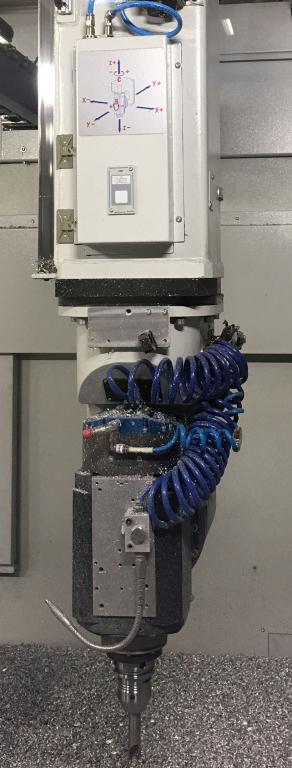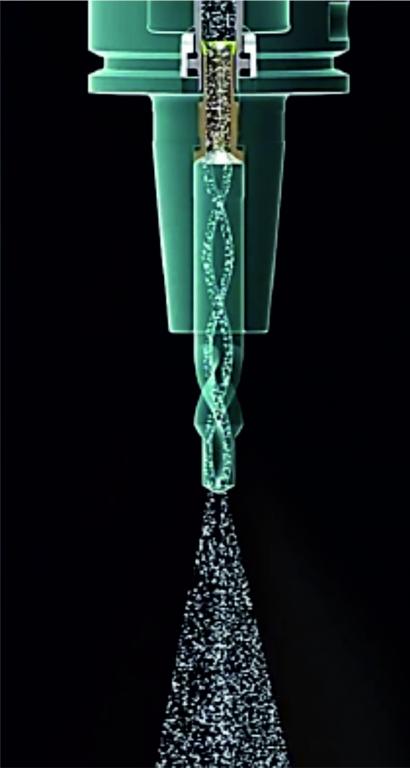Efficient Energy and Cost Reduction with MQL
Revolutionise modern machining processes with MQL systems, a sustainable alternative to conventional coolants. This specialised technology significantly diminishes friction among the workpiece, chip, and tool, resulting in decreased heat production, prolonged tool lifespan, elevated cutting speeds, and overall efficiency improvements. The entire machining process is streamlined, achieving cost savings and completion in a shorter timeframe. Depending on the specific machining process, remarkable savings of up to 30% can be realized.
In series production, dry machining with MQL technology offers substantial savings potential. Traditional coolant methods involve multiple devices such as emulsion cooling and cleaning, wet chip processing, and wastewater treatment. With MQL, all these devices become obsolete, contributing to an environmentally friendly and cost-effective machining approach.
MQL system benefits at a glance
-
Up to 50% energy saving, compared to coolant
-
Minimized lubricant consumption (on average: 20 ml/h)
-
No water consumption
-
Chips and machined parts nearly dry (no oil soiling)
-
Elimination of the metalworking fluid (emulsion) system
-
No need to prepare and dispose of used metalworking fluid
-
No thermal shock on the tool cutting edge
-
Longer tool life
-
Higher cutting speed
-
Better surface quality
-
Perfect execution of deep holes, even with L / D > 30
-
Complete visibility over the on-going process (no scattering)
-
Clean working environment, compliance with health and environmental regulations
Energy saving with MQL
Energy required by a machine tool, potential savings resulting from the use of MQL technology.
Cost savings with MQL
Comparison: coolant vs MQL minimal lubrication
Innovative technologies
Aerosol Supply
The aerosol is generated inside the MQL system using algorithms that regulate the technical generation process. The aerosol is conveyed to the lubrication point, either through flexible pipes and channels inside the machine or through external side nozzles. The oil particles get condensed into small droplets and are precisely addressed to hit the tool cutting edge.
System control
The individual volumetric flow rates are perfectly regulated by a control device inside the MQL system and all the data for process monitoring are transferred to the machine control system. A particular advantage of the MQL is the instrumental response time of less than 0.1 sec. In this way the systems can operate in a total safe mode, even on very dynamic and fast machine tools.
Data exchange
-
PROFIBUS
-
PROFINET
-
digital I/O






